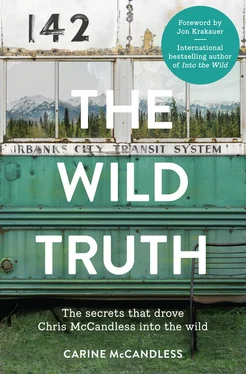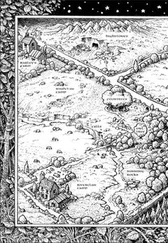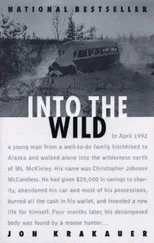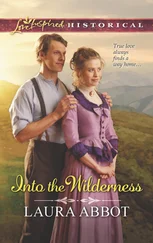COPYRIGHT CONTENTS Cover Title Page Copyright Dedication Epigraph Foreword Prologue Part One: Worth Chapter 1 Chapter 2 Chapter 3 Chapter 4 Chapter 5 Chapter 6 Part Two: Strength Chapter 7 Chapter 8 Chapter 9 Chapter 10 Chapter 11 Chapter 12 Part Three: Unconditional Love Chapter 13 Chapter 14 Part Four: Truth Chapter 15 Chapter 16 Picture Section Epilogue Author’s Note Afterword Acknowledgments About the Author About the Publisher
HarperElement
An imprint of HarperCollins Publishers 77–85 Fulham Palace Road, Hammersmith, London W6 8JB
www.harpercollins.co.uk
and HarperElement are trademarks of HarperCollins Publishers Ltd
First published in the US by HarperOne 2014
This UK edition published by HarperElement 2014
© Carine McCandless 2014
A catalogue record of this book is available from the British Library
All photos are from the author’s collection, with the exception of insert image 18, image 19, image 20, image 37 and image 38 © Dominic Peters; image 22 © Jon Krakauer.
Material quoted on p. vii from All Said and Done © Simone de Beauvoir; p. 15, “I Go Back to May 1937” © Sharon Olds; p. ix, “Dying in the Wild” © The New York Times ; p. 107, Growing Wings © Kristen Jongen; p. 187, Doctor Zhivago © Boris Pasternak.
While every effort has beenv made to trace the owners of copyright material reproduced herein and secure permissions, the publishers would like to apologise for any omissions and will be pleased to incorporate missing acknowledgements in any future edition of this book.
Carine McCandless asserts the moral right to be identified as the author of this work
All rights reserved under International and Pan-American Copyright Conventions. By payment of the required fees, you have been granted the nonexclusive, non-transferable right to access and read the text of this e-book on screen. No part of this text may be reproduced, transmitted, downloaded, decompiled, reverse engineered, or stored in or introduced into any information storage retrieval system, in any form or by any means, whether electronic or mechanical, now known or hereinafter invented, without the express written permission of HarperCollins e-books.
Find out more about HarperCollins and the environment at
www.harpercollins.co.uk/green
Source ISBN: 9780007585137
Ebook Edition © November 2014 ISBN: 9780007585144
Version: 2014-10-28
Cover
Title Page
Copyright
Dedication For Chris
Epigraph
Foreword
Prologue
Part One: Worth
Chapter 1
Chapter 2
Chapter 3
Chapter 4
Chapter 5
Chapter 6
Part Two: Strength
Chapter 7
Chapter 8
Chapter 9
Chapter 10
Chapter 11
Chapter 12
Part Three: Unconditional Love
Chapter 13
Chapter 14
Part Four: Truth
Chapter 15
Chapter 16
Picture Section
Epilogue
Author’s Note
Afterword
Acknowledgments
About the Author
About the Publisher
For Chris
I tore myself away from the safe comfort of certainties through my love for truth; and truth rewarded me.
—Simone de Beauvoir, All Said and Done
On September 14, 1992, I got a phone call from Mark Bryant, the editor of Outside magazine, who sounded unusually animated. Skipping the small talk, he told me about a snippet he’d just read in the New York Times that he couldn’t stop thinking about:
DYING IN THE WILD, A HIKER RECORDED THE TERROR
Last Sunday a young hiker, stranded by an injury, was found dead at a remote camp in the Alaskan interior. No one is yet certain who he was. But his diary and two notes found at the camp tell a wrenching story of his desperate and progressively futile efforts to survive.
The diary indicates that the man, believed to be an American in his late 20’s or early 30’s, might have been injured in a fall and that he was then stranded at the camp for more than three months. It tells how he tried to save himself by hunting game and eating wild plants while nonetheless getting weaker.
One of his two notes is a plea for help, addressed to anyone who might come upon the camp while the hiker searched the surrounding area for food. The second note bids the world goodbye.
An autopsy at the state coroner’s office in Fairbanks this week found that the man had died of starvation, probably in late July. The authorities discovered among the man’s possessions a name that they believe is his. But they have so far been unable to confirm his identity and, until they do, have declined to disclose the name.
Although the article raised more questions than it answered, Bryant’s interest had been piqued by its handful of poignant details. He wondered if I’d be willing to investigate the tragedy, write a substantial piece about it for Outside , and complete it quickly. I was already behind schedule on other writing assignments and feeling stressed. Committing to yet another project—a challenging one, on a tight deadline—would add considerably to that stress. But the story resonated on a deeply personal level for me. I agreed to put my other projects on hold and look into it.
The deceased hiker turned out to be twenty-four-year-old Christopher McCandless, who’d grown up in a Washington, D.C., suburb and graduated from Emory University with honors. It quickly became apparent that walking alone into the Alaskan wilderness with minimal food and gear had been a very deliberate act—the culmination of a serious quest Chris had been planning for a long time. He wanted to test his inner resources in a meaningful way, without a safety net, in order to gain a better perspective on such weighty matters as authenticity, purpose, and his place in the world.
Eager to receive whatever insights into Chris’s personality his family might be able to provide, in October 1992 I mailed a letter to Dennis Burnett, the McCandlesses’ attorney, in which I explained,
When I was 23 (I’m 38 at present) I, too, set off alone into the Alaskan wilderness for an extended sojourn that baffled and frightened many of my friends and family (I was seeking challenge, I suppose, and some sort of inner peace, and answers to Big Questions) so I identify with Chris to a great extent, and feel like I might know something about why he felt compelled to test himself in such a wild and unforgiving piece of country. . . . If any of the McCandless family would be willing to chat with me I’d be extremely grateful.
My letter resulted in an invitation from Chris’s parents, Walt and Billie McCandless, to visit them at their home in Chesapeake Beach, Maryland. When I showed up on their doorstep a few days later, the intensity of their grief staggered me, but they graciously answered all of my many questions.
The last time Walt or Billie had seen Chris or spoken to him was May 12, 1990, when they’d driven down to Atlanta to attend his graduation from Emory. Following the ceremony, he mentioned that he would probably spend that summer traveling, and then enroll in law school. Five weeks later, he mailed his parents a copy of his final grades, accompanied by a note thanking them for some graduation gifts. “Not much else is happening, but it’s starting to get real hot and humid down here,” he wrote at the end of the missive. “Say Hi to everyone for me.” It was the last anyone in the McCandless family would ever hear from him.
Читать дальше






![Theresa Cheung - The Dream Dictionary from A to Z [Revised edition] - The Ultimate A–Z to Interpret the Secrets of Your Dreams](/books/692092/theresa-cheung-the-dream-dictionary-from-a-to-z-r-thumb.webp)





